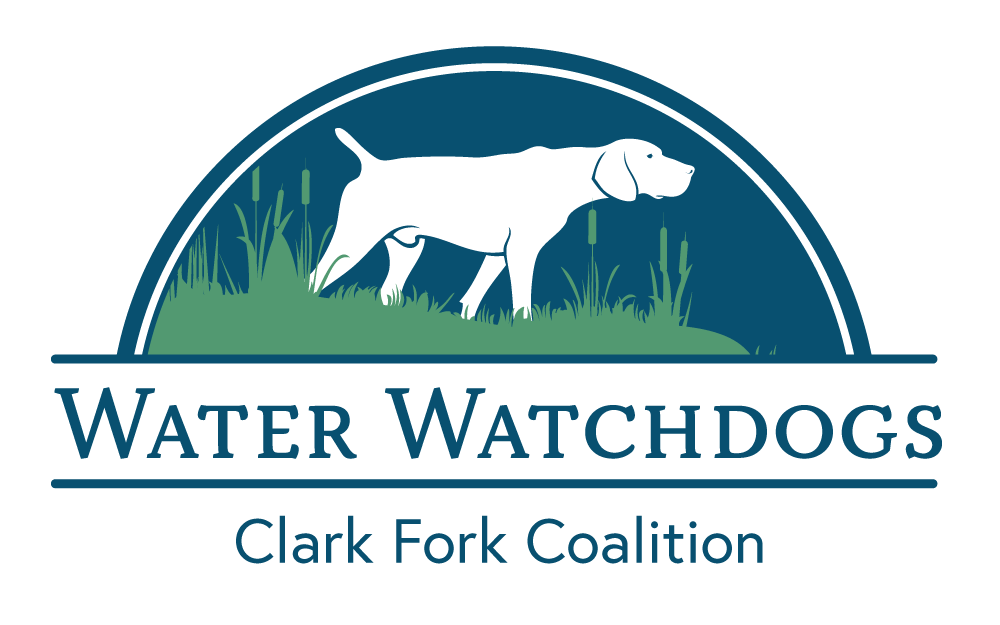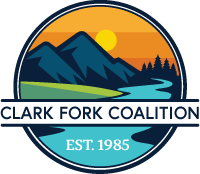Water Watchdogs Program
The Clark Fork Coalition’s Water Watchdogs Program offers concerned citizens a chance to actively shape Montana’s water policies. Whether you’re new to advocacy or an experienced activist, this program equips you with the tools and knowledge to protect our watersheds and promote positive change in the legislative process. Click here to join today!

Current issues we’re tracking:
Action Alert- Tell DEQ: No nutrient pollution plan, no new or revised pollution permits!
The EPA recently approved a major rollback of clean water protections in Montana—eliminating numeric nutrient standards that help safeguard our rivers.
Now, Montana DEQ may move forward with new or revised pollution permits without a science-based plan to prevent nutrient pollution.
At the Clark Fork Coalition, we are committed to protecting the Clark Fork River watershed from nutrient degradation. We’ve joined partners across the state in signing a petition urging DEQ to pause all new and renewed permits until a lawful, science-backed plan is in place.
Excess nutrients already threaten our rivers—fueling algae blooms, harming fish and aquatic life, and degrading the waters we treasure.
![]() Add your name to the petition today and help us ensure a healthy future for the Clark Fork River watershed:
Add your name to the petition today and help us ensure a healthy future for the Clark Fork River watershed:
📞 We also encourage you to contact your state representative, Governor Gianforte’s Office directly at 406-444-3111, or DEQ Director Nowakowski at 406-444-2544.
Background:
The petition comes in response to the Environmental Protection Agency’s (EPA) October 3, 2025 approval of Montana’s House Bill 664 and repeal of numeric nutrient water quality standards. Before EPA’s approval of HB 664, DEQ was required to utilize a well-developed body of science, including numeric nutrient criteria, to inform all Clean Water Act nutrient pollution decisions. With the repeal of numeric criteria and all related guidance, the agency now lacks any implementation plan detailing how it will apply narrative nutrient criteria across the State.
Montana spent more than a decade developing clear and reasonable numeric water quality standards for nutrients outlining what is needed to proactively protect our waterways, our economy and our way of life from harmful and excessive levels of nutrients like nitrogen and phosphorus. These numeric standards for nutrient pollution have a track record of measurable success, particularly on the Clark Fork River. With the repeal of numeric criteria and all related guidance, Montana DEQ has not provided an implementation plan detailing how it will apply narrative nutrient criteria across the State.
According to DEQ’s 2020 Integrated Report, 35% of assessed Montana waterways are already impaired by nutrient pollution. Nutrient pollution causes and contributes to neon-green and toxic algal blooms that decrease dissolved oxygen, degrade water quality, and harm fish, aquatic life, drinking water supplies, and the state’s $1.3 billion cold-water fishing economy, not to mention the tens of thousands of jobs dependent on cold, clean rivers.
To learn more about the importance of protective numeric nutrient criteria and the pitfalls of returning to a narrative-only approach to nutrient pollution control, visit the Upper Missouri Waterkeeper’s list of Frequently Asked Questions.
End of 2025 Session Recap On Priority Bills
The Good
SB 190 – Derek Harvey (D)
CFC SUPPORTED (BILL PASSED): SB 190 allows water users to voluntarily file a written consent to waive the adverse effects analysis requirement when applying for water right permits, changes in appropriation rights, or temporary changes in water rights. CFC utilizes the water right change process to temporarily convert irrigation water rights to instream flow on dewatered streams throughout the Clark Fork Basin. SB 190 will streamline this change process and improve our ability to complete important flow restoration projects on key streams and rivers.
HB 580 – Josh Seckinger (D)
CFC SUPPORTED (BILL PASSED): In Montana, water rights are subject to the law of abandonment, meaning that an irrigator who stops diverting irrigation water for an extended period of time could potentially be accused of abandoning his/her water rights. HB 580 clarifies the law to make sure that water users who voluntarily choose to stop using water during a drought and in compliance with a local, state or regional drought management plan cannot be subject to claims of “abandonment” of their water rights. CFC supports this common-sense policy change, which will encourage users to make voluntary decisions to conserve water and help protect streamflows during periods of intense drought.
SB 472 – Denley Loge (R)
CFC SUPPORTS (BILL IN SENATE): HB 472 increases the civil penalty for violation of the Montana Streambed Preservation Act. CFC supports this bill because it will effectively deter more individuals from undergoing projects that could impact our streams and rivers without receiving approval from the Board of Supervisors for the local Conservation District. The bill still allows the Board to work with an offending party to resolve a dispute before collecting the civil penalties.
SB 178 – Sue Vinton (R)
CFC SUPPORTED AS AMENDED (BILL PASSED): This bill will create a new tool that could be used by CFC to combat dewatering within the basin. The bill creates a new, short-term water leasing tool that promotes voluntary, temporary leases of water rights for a new proposed beneficial use. The leases would be short-term (40 days annually) and cannot be used more than 5 out of every 10 years but are otherwise exempt from receiving a “change of use” authorization from DNRC.
SB 358 – Wylie Galt (R)
SB 436 – Carl Glimm (R)
SB 186 – Barry Usher (R)
HB 704 – Mike Vinton (R)
HB 658 – Jedediah Hinkle (R)
The Bad
HB 256 – Ken Walsh (R)
CFC SUPPORTED (BILL FAILED): HB 256 would’ve created a new state special revenue account for water development, and seeded the trust with $50 million from general fund in 2025 and an additional $50 million in 2026. The bill would’ve required a portion of the earned interest to fund water storage pilot projects aimed at increasing water storage for beneficial uses. CFC has several potential water storage projects under development aimed at boosting streamflows on dewatered streams in the Clark Fork Basin. The bill received overwhelming support in the House but ultimately failed in the House Appropriations Committee.
The Ugly
HB 664 – Bill Mercer (R)
CFC OPPOSED (BILL PASSED): HB 664 would repeal Montana’s numeric water quality standards for nutrients that were adopted in 2014, eliminate the Nutrient Work Group and attempt to revert the state’s WQS to narrative standards for nutrient pollution. These numeric nutrient standards have a proven track record of success in the Clark Fork Basin and offer the best path for protect our state’s water resources from harmful nutrient pollution. CFC opposes HB 664 because it would Montana’s numeric nutrient standards without a clear plan for replacement, without any scientific basis for the rollback, and without submitting the proposed changes to the EPA for approval as required by the CWA. The bill passed both houses. CFC will ask Gov. Gianforte to veto the bill.
HB 685 – Steve Fitzpatrick (R)
CFC OPPOSED (BILL PASSED): In some cases, Montana DEQ can grant permission for a proposed project (such as a mine) to negatively impact water quality in a given stream or river. In order to do so, DEQ must (among other things) balance the economic or social benefits of a proposed project with the costs of allowing degradation of our high-quality waters. HB 685 eliminates this requirement. Instead, it would require DEQ to simply determine whether the proposed project will result in economic development “in the area that the high-quality waters are located.” CFC opposes this bill because it will make it easier for DEQ to authorize degradations of our high-quality waters. The bill passed both houses. CFC will ask Gov. Gianforte to veto the bill.
